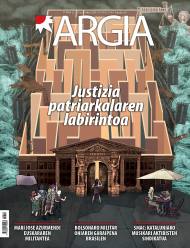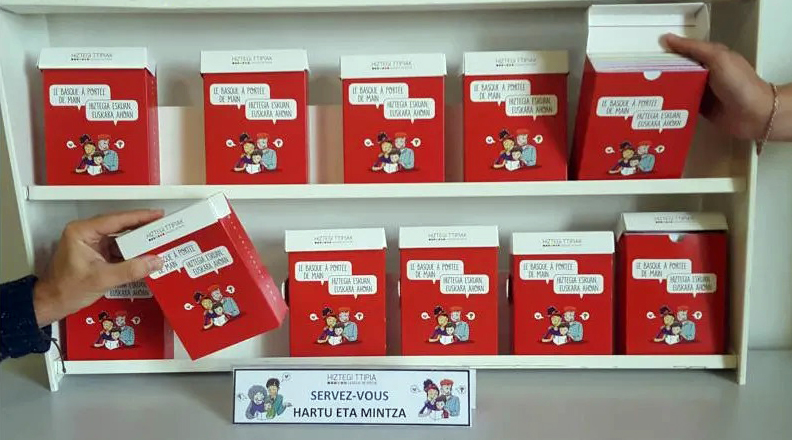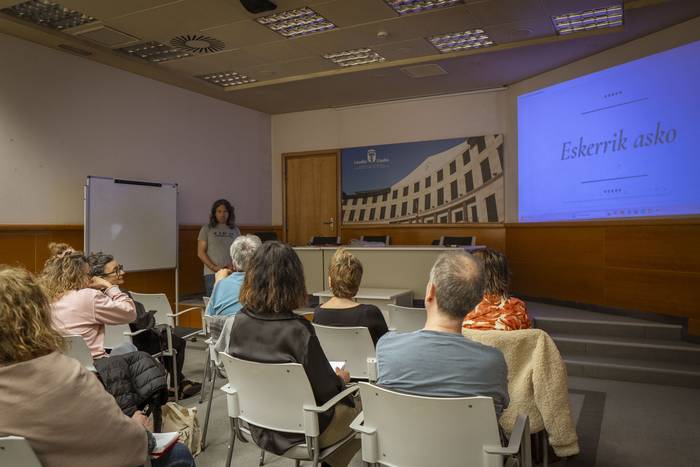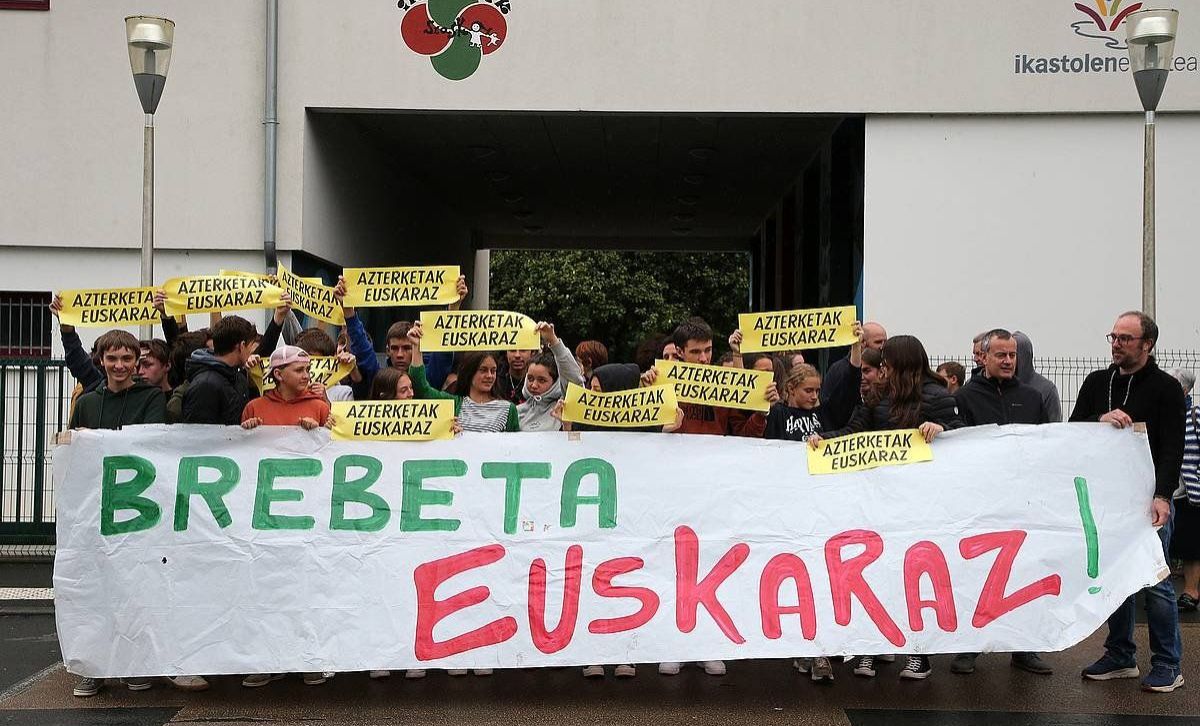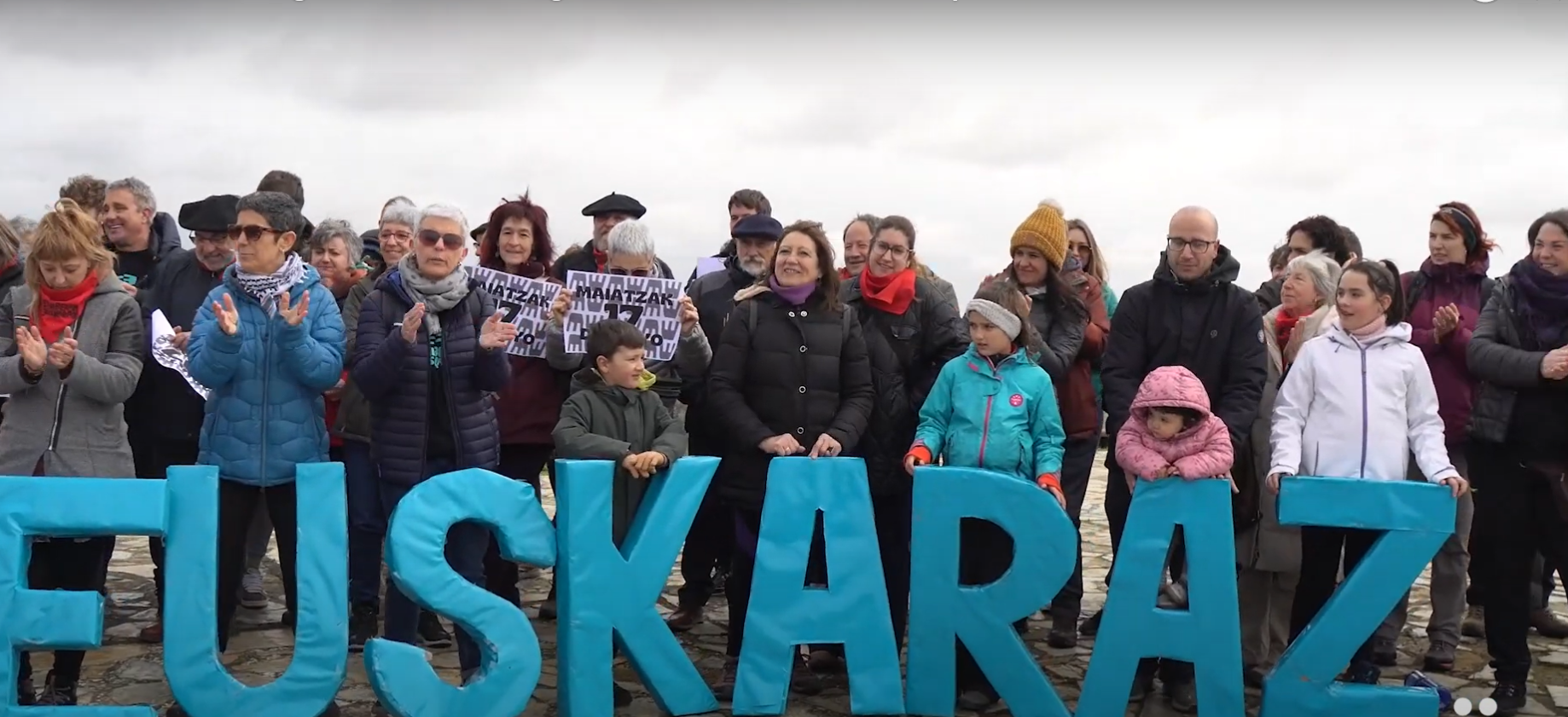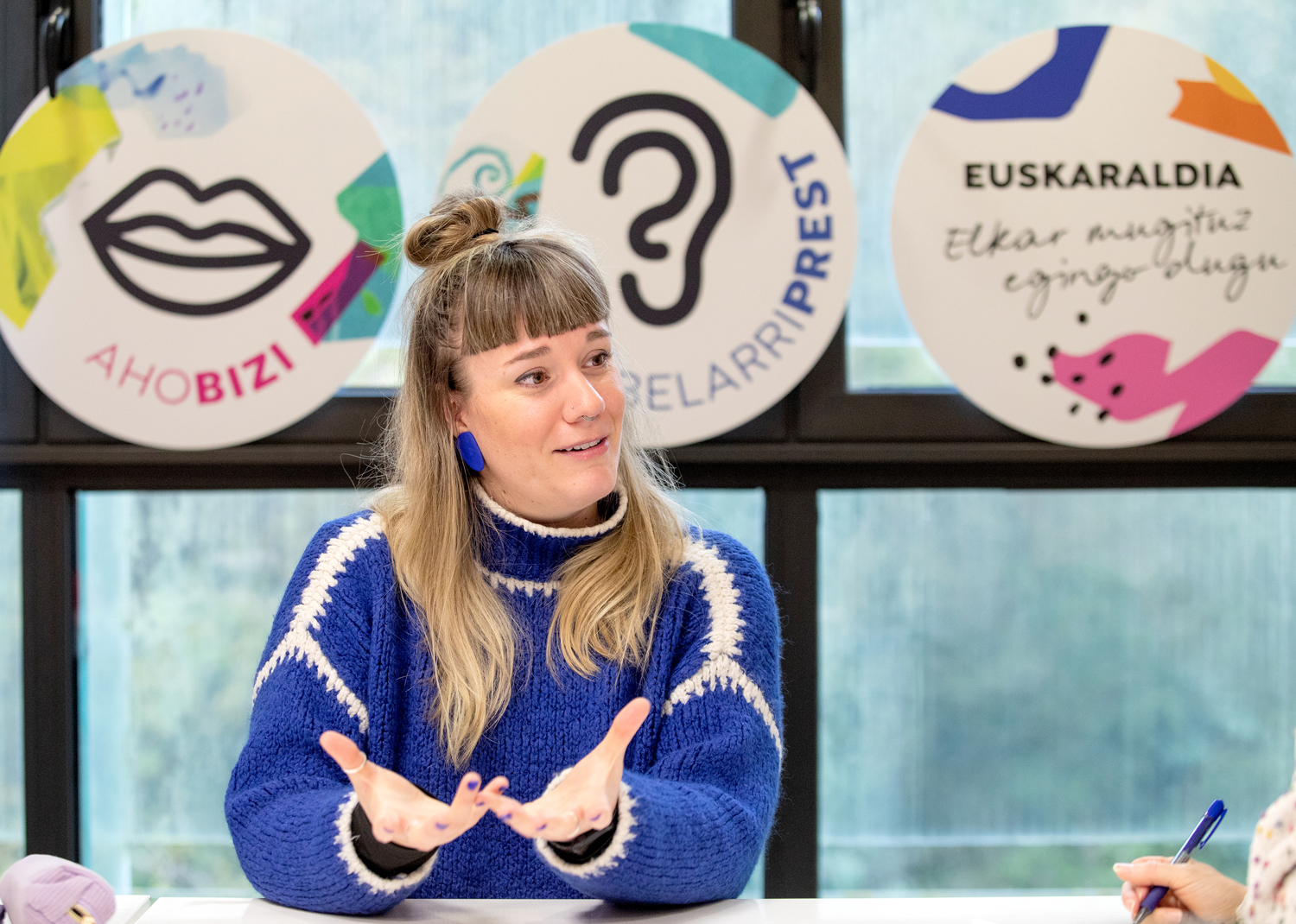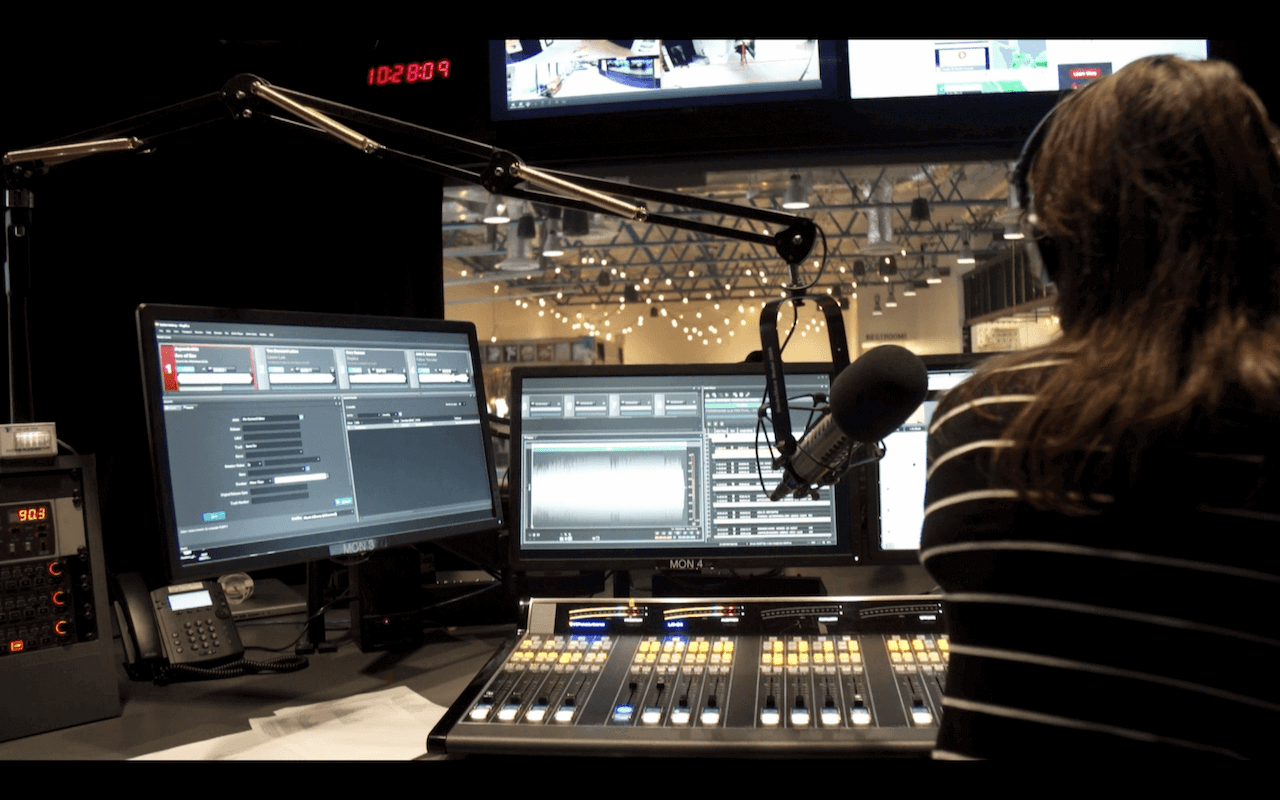"Doctors use technical words in Spanish and at work we write everything in Spanish"
- 13 and 14 September, in Bilbao. Health and Language Conferences in the Summer Courses of the UPV/EHU. Dozens of people met to work in Euskera in the field of health. If patients are frequently treated in Spanish, the entire working language in the health field is Spanish. These days were attended by Bilbo Hiria Irratia and interviews with various rapporteurs. One of them was Félix Zubia Olaskoaga. Physician in Intensive Care at Donostia Hospital and Assistant Professor at the Faculty of Medicine at UPV/EHU. We brought the interview by Bilbo Hiria Irratia to paper.
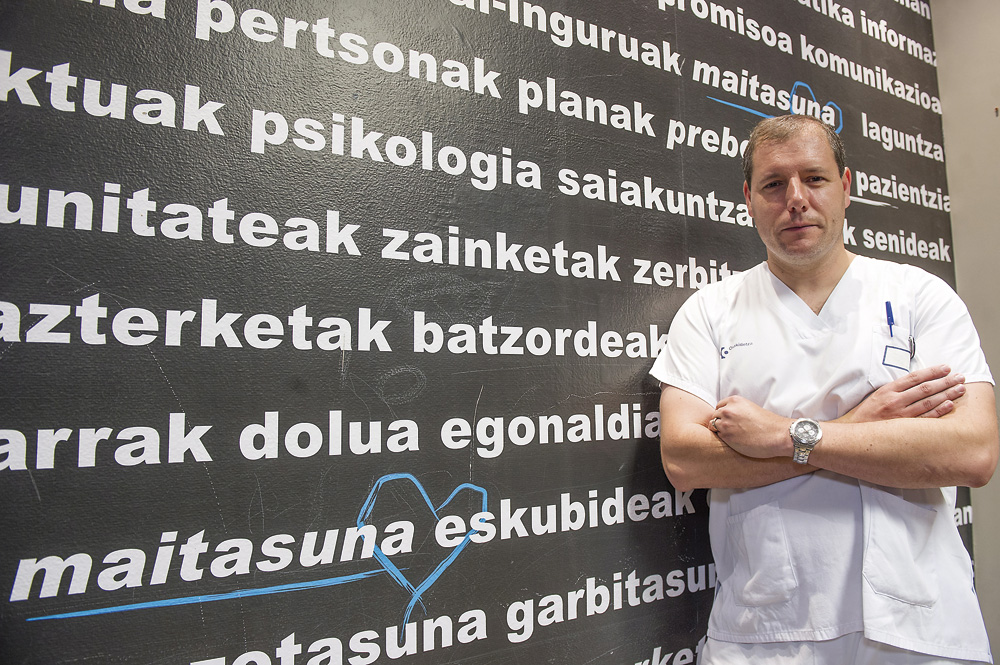
Felix Zubia, in your speech you've been talking about health and language. What did you tell the listeners?
As far as science is concerned, we have little on this subject. Above all, I have given my opinion and my point of view, and where the matter should go.
Tell us what you've explained.
Firstly, in Osakidetza and in the whole area of health, it is a great need for Euskera to be a working language. Of course, we have always used Euskera for communication, both with patients and among workers. But turning Euskera into a working language would be a step forward. I mean, we use Euskera when we write our documents in Euskera and we talk about medical issues. Because it happens many times to us, that we're not used to speaking in Basque, and let's put that piece in Spanish, because we don't know how to say it in Basque. Instead of saying ‘it has an acute myocardial infarction on the front side of the heart’, we say ‘it has an anterior infarction’. The technical words are used in Spanish and all the writing is done in Spanish.
You mentioned the need to educate health workers.
We need double literacy. We are many literate, but we also need to be literate in technical language. Some of us are professors of the University of the Basque Country/Euskal Herriko Unibertsitatea, and therefore we are literate, but much less. And it's true that what we learned from not using it is also rusting, and that we should also recover it. Otherwise, we have a totally unbalanced situation, we have Basque workers who are not able to give a kind of technical subject in Basque. Why? Because they don't use these kinds of expressions on a daily basis. Many young people, and perhaps have undergone university studies in Euskera, use Spanish for specialized training. Why? Because the whole environment is working in Spanish and the supraspecialized models they have are also in Spanish. We still have unearned points or unaddressed areas, to which we should reach.
The challenge is big.
This is not just a challenge for Osakidetza. I recently read that the Provincial Council of Gipuzkoa also wanted that, and I believe that if there is a great institution, the Basque Government can be the Provincial Council of Gipuzkoa. Its challenge for 2018 is to use Euskera as a working language. In 2014, Patxi Baztarrika [then Deputy Minister of Linguistic Policy of the Basque Government] said that the biggest challenge was to turn Euskera into a working language. In many organisations we have a need and in Osakidetza too.
Does Osakidetta pay the necessary attention to the meeting of professional Basques?
A drop falls to the sea on a slide. If we move in very Castilian speaking environments (and I don't just mean people, I'm talking about customs), if we put a drop of water in them, it dissolves. In the Basque Plan of Osakidetza there is the possibility of using Euskera as a working language, there is the possibility of creating circuits in Euskera, but it is something that must be taken seriously, we would need a special plan. Within the Euskera Plan we should put a sub-paragraph, to that we must put in place concrete measures and a budget to carry out concrete measures. First, I would ask to identify certain fields, to know where circuits can be made in Euskera. In 2017, the number of employees with Basque accreditation in Osakidetza stood at 37-38%. Growth has been remarkable in recent years and is expected to reach 60% or 65% by 2022 or 2025. Just as the elderly are being withdrawn and the young people are coming in that is going to be what is going to come, but it would also be a shame to wait so long, and for those people we have to create environments where we can speak in Basque. Creation of specific points working in Basque, training of the staff of the specific points, subsequent support and evaluation. The joining of these points will make up our lake or our sea.
Do you want to carry out this kind of dynamic among the workers?
There's everything. There are areas where you can create circuits in Euskera. I know some of these areas, they are working at the will of the workers and with an appropriate percentage of Euskaldunes. I know the services in which three quarters of the employees are Euskaldunes. In addition, we will have to get used to having in common workers with different levels of knowledge. We will have to get used to using Euskera naturally in the interview, and perhaps one person responds in Spanish, and then speak in Euskera. It is one of the biggest problems we have had with Euskaldunes: if someone does not speak in Euskera, we all go to Spanish. We called him Belarriprest [in Euskaraldia]. Well, we have to get used to doing that exercise naturally and really do it.
The next step, and it's not that far away, is an automatic translator. Right here we have experts in machine translation. We need a system that correctly translates the text into Basque or Spanish. It is important to provide a security that understands the text written in Basque who has not been able to understand it well. This person would translate to Spanish through machine translation. If we did not have this system, the employee who drafted the texts in Basque would also be obliged to do so in Spanish. We cannot put patient safety at risk. I work in intensive care with the worst. Suppose I've written my text in Basque, and if the employee behind me doesn't understand it, what would happen? We want to avoid these situations, so that it is not a problem to understand the language.
Still, I said that there are points that have told us that they are willing to make circuits in Basque. As the model emerges and you see it's possible, more would be produced.
A few years ago it was impossible to do so. I have been in Donostia Hospital for nineteen years, six years before studying, and the situation of 25 years ago and the one we have today has nothing to do with it. We have the opportunity, the challenge and the need. The situation must be exploited.
Antton Kurutxarri, Euskararen Erakunde Publikoko presidente ordearen hitzetan, Jean Marc Huart Bordeleko Akademiako errektore berriak euskararen gaia "ondo menderatzen du"
You may not know who Donald Berwick is, or why I mention him in the title of the article. The same is true, it is evident, for most of those who are participating in the current Health Pact. They don’t know what Berwick’s Triple Objective is, much less the Quadruple... [+]
Is it important to use a language correctly? To what extent is it so necessary to master grammar or to have a broad vocabulary? I’ve always heard the importance of language, but after thinking about it, I came to a conclusion. Thinking often involves this; reaching some... [+]
Adolescents and young people, throughout their academic career, will receive guidance on everything and the profession for studies that will help them more than once. They should be offered guidance, as they are often full of doubts whenever they need to make important... [+]
Maiatzaren 17an Erriberako lehenengo Euskararen Eguna eginen da Arguedasen, sortu berri den eta eskualdeko hamaika elkarte eta eragile biltzen dituen Erriberan Euskaraz sareak antolatuta
Ansorena´tar Joseba Eneko.
Edonori orto zer den galdetuz gero, goizaldea erantzungo, D´Artagnanen mosketero laguna edo ipurtzuloa, agian. Baina orto- aurrizkiak zuzen adierazten du eta maiz erabiltzen dugu: ortodoxia, ortopedia, ortodontzia... Orduan (datorrena... [+]
We have had to endure another attack on our language by the Department of Education of the Government of Navarre; we have been forced to make an anti-Basque change in the PAI program. In recent years, by law, new Model D schools have had to introduce the PAI program and have had... [+]
"Ask for your turn and we'll join you," the willing and cheerful announcer who speaks from the studios tells the young correspondent who walks through the streets of Bilbao. The presenter immediately addressed the audience. "In the meantime, we are going to Pamplona..." They opened... [+]









